
Stop getting me confused with everything else down there
The number-one mistake women make in the ob-gyn office: They call everything the vagina. “I’m always shocked at how women are so confused about their anatomy,” says Alyssa Dweck, MD, assistant clinical professor at Mount Sinai School of Medicine and gynecologist in Westchester County, NY. “People are all-encompassing about the word ‘vagina.’ They think that means everything down there, but each part is different.” Here’s the breakdown: Your vagina is the inner muscular tube that connects the cervix of the uterus to the vulva. The vulva is everything that you see on the outside, including the labia majora and labia minora (outer and inner “lips”), the clitoris (the sensitive pleasure center at the top tip of your labia), and the urethra (where you urinate). Make sure you know the 15 everyday habits that can mess with your vaginal health.

Your discharge isn’t that weird
Seems excessive? Don’t feel gross. There’s no “normal” amount of vaginal discharge—it may fluctuate depending on your menstrual cycle. Mid-cycle, secretion increases and is generally clear and stretchy (think egg whites). “This facilitates sperm motility into the vagina, cervix, and uterus so fertilization can occur. It lets you know it’s a fertile time of the month,” says Dr. Dweck. Other times of the month, discharge may be thicker and whiter.
Signs you should worry about: Clumpy discharge, like cottage cheese, could signal a yeast infection. Grey discharge with a fish-like odor may indicate bacterial vaginosis (BV), an overgrowth of bacteria. Heavy secretion that is grey, yellow, or green could be a side effect of gonorrhea, a sexually transmitted infection (STI). In these cases, see your doctor.

I’m not as strong as I used to be
Up to 40 percent of women have some sort of pelvic organ prolapse (POP), in which vaginal walls protrude toward or through the vaginal opening. Unfortunately, many are too embarrassed to discuss this with their physician. “Many women don’t realize the vagina can lose support,” says Leslie M. Rickey, MD, associate professor of urology and obstetrics and gynecology at Yale School of Medicine in New Haven, Connecticut. A woman with POP might notice a bulge, pain with intercourse, vaginal pressure, bladder and bowel problems, and back or pelvic pain. Risk factors for POP include pregnancy, childbirth, aging, menopause, smoking, and trauma. Your doctor may be able to prescribe pelvic floor-strengthening exercises or a removable device to support areas of prolapse.
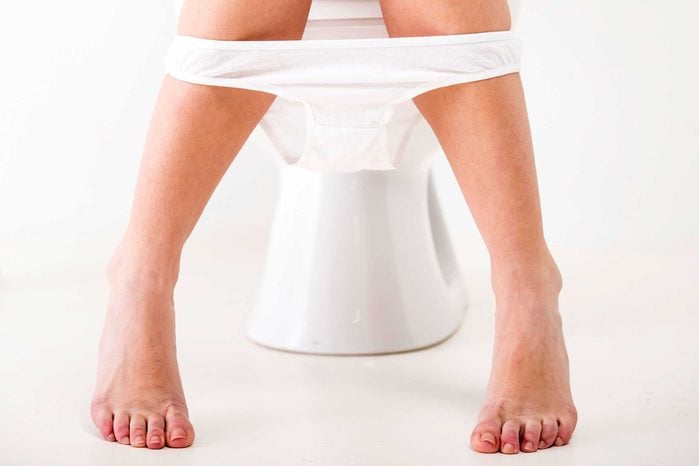
Please pee after sex
Running to the toilet post-romp isn’t exactly Nicholas Sparks material. But neither are urinary tract infections (UTIs). Blame anatomical placement: In women, the urethra, vagina, and anus are all in close proximity. Intercourse can cause anal bacteria to make its way into the bladder, where it may multiply and cause a UTI. “It’s different for men, who have a big distance from their anal area to their urethra because of the penis length,” says Dr. Dweck. “Think of the mechanics of thrusting during intercourse. Bacteria can move around.” If you’re prone to infection, urinate before and after sex to help cleanse the urethra opening of bacteria. Find out why you have abdominal pain after sex.

Ditch the douche
Your vagina doesn’t like it. Still, one in four women 15 to 44 years old douche in the United States. Not only can douching alter the natural pH of your vagina, increasing risk of infection and irritation, but the area is clean enough without it. “The vagina is not a dirty, horrible place that needs constant cleaning and vigorous scrubbing,” says Dr. Dweck. “Cleaning the vagina is like bathing anywhere else. We usually recommend a mild soap and water.” No loofah, fragrances, or streams of spraying water required, thank you.
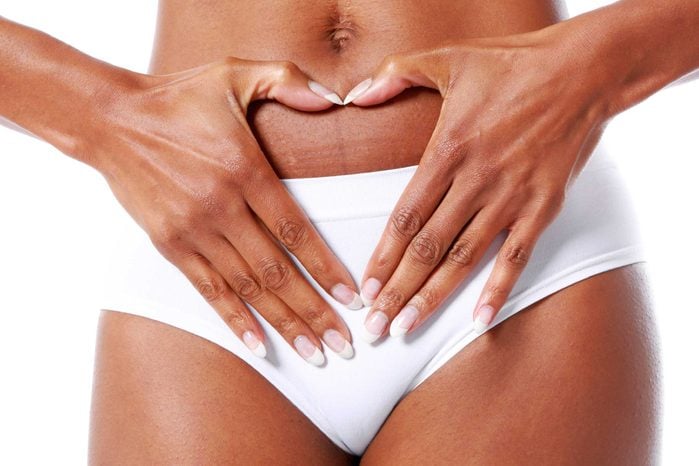
Kegels are important, but not for everyone
“Most people equate Kegels with something that’s only helpful around pregnancy and postpartum,” says Dr. Rickey. “But it’s been shown that a strong, healthy pelvic floor can affect bladder, vaginal, and bowel function across the lifespan, even into older age.” Though many doctors suggest Kegel exercises for pregnancy-related incontinence, a review of studies published in the World Journal of Urology found pelvic floor exercises can also prevent stress incontinence (urine leakage that occurs with coughing, sneezing, or laughing) and pelvic organ prolapse. Contract your pelvic floor muscles as though you’re stopping urine flow. Hold for three seconds, relax for three seconds, and repeat 10 to 12 times. Gradually work toward 10-second contractions daily.
However, some women who experience pain during intercourse or need to use the bathroom very frequently may have an overly tight pelvic floor, rather than a weak one. In this case, strengthening the muscles can make the condition worse. If you suspect this is your situation, see your doctor, who may refer you to a pelvic floor physical therapist to help relax the muscles.

You can smell like “sex”
It’s scientific eau de parfum. Vaginal secretions are acidic (low pH). Semen is alkaline (high pH). When the two combine, chemical reactions create new properties that may have distinct odors. The exact smell depends on your individual pH levels—things like douching (which you’ve promised not to do, right?) or bubble baths can affect where your vagina lies on the pH scale. If you detect a foul or fishy odor after sex, see your doctor. It could be a sign of a bacterial imbalance in your vagina or an infection in your partner’s semen.
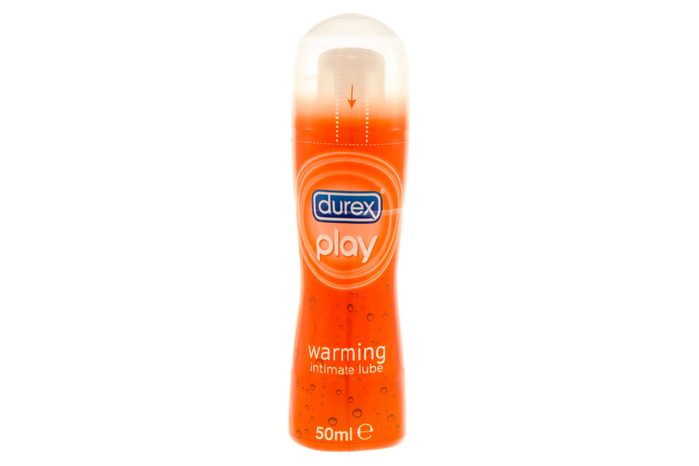
Skipping lubricant? You’re missing out
More than 65 percent of women have used lubricant to make sex more pleasurable or comfortable, according to an Indiana University study. Related research has found women rate their lovemaking as substantially more enjoyable when using it compared to sex without lube. Keeping sex pleasurable is important as we age, because sex has the power to improve your mood, whittle your waistline, and even increase longevity. Though menopause is generally blamed for vaginal dryness, many other factors may affect it, including stress, jet lag, alcohol, birth control pills, and, yes, extended lovemaking.
If using lubrication, check its base. A water-based lubricant, like K-Y Jelly, is a good choice for enhancing pleasure and for use with condoms. Oil-based lubricants, like edible coconut oil, may be preferred for oral sex but aren’t condom-friendly (they increase risk of condom breaks). For long-lasting lubricant, try one with a silicone base. If you’re prone to infection, make sure it doesn’t contain glycerin, which has sugars that can cause yeast in the vagina to multiply. Look for “fertility-friendly” lubricants like Pre-Seed if you’re trying to conceive.
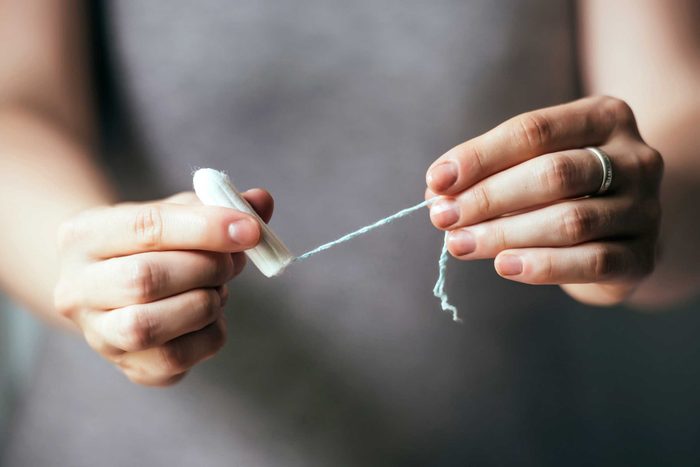
Stop making these tampon mistakes
Of course you wash your hands after inserting a tampon. But what about before? Dirty hands can contaminate the tampon, which then sits inside your vagina for four to eight hours. And never, ever use tampons if you’re not getting your period. If you insert one to, say, plug discharge, it could alter your vagina’s pH and increase chances of infection. Finally, never skip changing a tampon after you poop. If you don’t, anal bacteria may be transferred to the tampon string, which can then infect the urethra (hello, UTI!). Plus, a bowel movement may dislodge the tampon, causing discomfort.
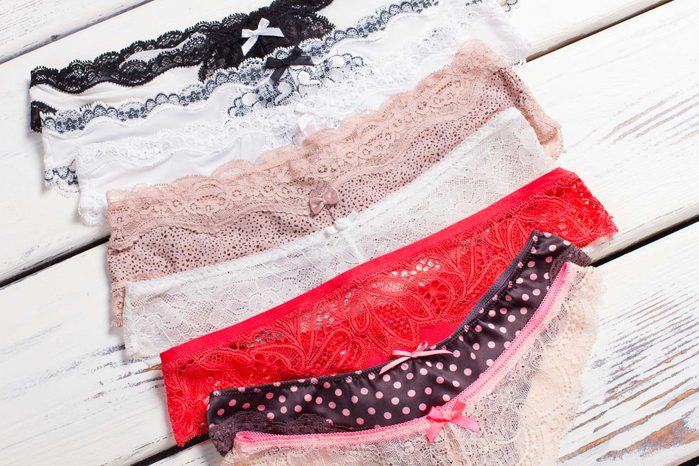
Cotton or commando, please
Your vagina needs an occasional breath of fresh air. Dark, tight, and moist environments can prevent aeration, promoting yeast or bacterial infections. “Cotton underwear, going commando, or thong underwear with a cotton crotch are probably your best bets,” says Dr. Dweck. “Often, if someone is prone to infection, I’ll tell them to sleep without underwear to aerate the area. I’ll also tell them to put a hair dryer on cool when they come out of the shower and blow-dry their bottom to get rid of excess moisture.” Clothing to avoid: Spandex, wet bathing suits, dirty or wet gym clothes, and pantyhose without a cotton crotch.

Your menstrual cycle can be persnickety
If your period is suddenly MIA, it’s reasonable to suspect pregnancy. But if you’ve been abstinent or have used birth control religiously, many other factors can mess with your period’s punctuality. Stress can stop your period (a death of a family member or job loss, not daily hassles like commuting or deadlines), says Dr. Dweck. Scientists suspect the explanation is evolutionary: If you’re focused on survival—whether the threat is a lion or a mortgage payment—your body and brain may shut down reproductive hormones to prevent bearing children in a threatening environment. Too much exercise may also put your period on hold if your body perceives it as an extreme stressor.
Drinking could also have an effect. The National Institute on Alcohol Abuse and Alcoholism states that even drinking in amounts that don’t damage your liver or other organs can cause irregular menstrual periods. Drinking may boost levels of estrogen and testosterone, disrupting normal hormonal fluctuations. Other possible causes of abnormal periods: anti-depressants or anti-psychotics, shift work, low body fat levels, rapid weight gain, a thyroid disorder, and smoking.

I’m a shapeshifter
Just as the rest of your body changes with age, your vagina undergoes shifts in shape and color. In your 20s, your vagina may become more visible, but it’s the lips around it that are actually shrinking and becoming thinner, explains Dr. Dweck. Subcutaneous fat throughout the body decreases with age. In your 30s, hormone shifts caused by pregnancy or aging may cause the vaginal area to darken in color. In your 40s, lower estrogen levels may change the vagina’s pH balance, spurring inflammation and the thinning and drying of vaginal walls. (Cue itching, redness, and burning.) A good way to keep your vagina healthy? Regular intercourse.
And FYI: Sex doesn’t permanently stretch the vagina. Rather, the vagina loosens during arousal and tightens afterward, regardless of how often a woman has sex. As for childbirth, young women (say, early twenties) usually experience complete vaginal re-tightening. However, having many children can cause vaginal muscles to fatigue and no longer fully contract. Aging has a similar effect, which is why some women may complain of looseness as they grow older—whether or not they’ve given birth. Women who bear children in their 30s or 40s may experience looseness as a result of aging and childbearing at an older age. Kegels may help tighten the muscles.
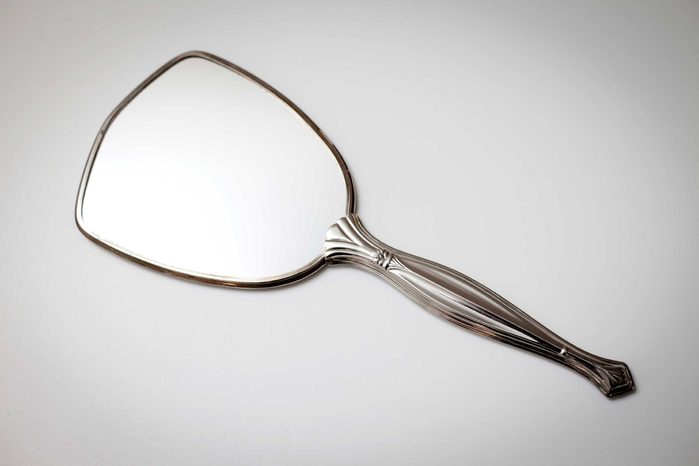
Let’s get to know each other better
Make a date with your vagina. Use a mirror to get familiar with what it looks like, so you can better identify any sudden changes that merit a doctor visit. “Feeling around in the shower is how a lot of people find out they have something going on,” says Dr. Dweck. “They’ll notice a bump, and sometimes it turns out to be something that shouldn’t be there. Other times it’s just their cervix.”
To do a vaginal self-examination, grab a small hand mirror with a long handle and a small flashlight. Wash your hands and sit on the floor, couch, or bed. Support your back with pillows. Inspect the labia, clitoris, urethral opening, vagina opening, and anus opening. See a doctor if you notice any problems such as genital warts, sores, or vaginal discharge with a bad odor.
Get The Healthy @Reader’s Digest newsletter for what’s trending in health and wellness daily. Follow us on Facebook, Instagram, and Twitter, and keep reading:
- The 5 Best Hormone-Safe Sunscreens, Recommended by Doctors
- Rob Lowe Gets Candid about Fatherhood, Fitness, and the Diet That’s Been a ‘Very Good Fit’
- Dermatology Pros Just Listed Their 6 Favorite Vitamin C Serums
- Here’s How Long the Best Nap Lasts, a Neuroscientist Says
- The Best Menstrual Cups for More Affordable, Sustainable (and Cleaner!) Periods